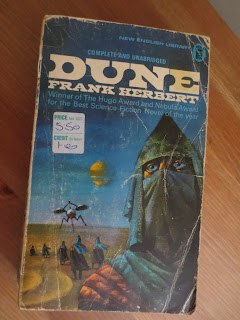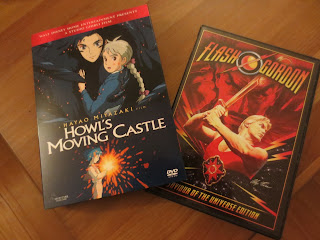I recently celebrated a birthday. This year I asked the family for iTunes vouchers. I decided that the purchase of music over the internet was sufficiently mature for me to enter the field and with a little annual leave on my hands I entered in style, purchasing the following albums, loading them onto my iPod and inflicting them on the family (along with stuff from the CD collection such as R.E.M., David Bowie, John Denver).
The Cat Empire
So Many Nights - The Cat Empire
Steal the Light - The Cat Empire
The Stranger - Billy Joel
Turnstiles - Billy Joel
This is The Moody Blues
The Very Best of Deep Purple
In the process I discovered something that you, the reader, will likely already know. Online shopping is easy, robust and fun! Also
The Cat Empire are awesome.
With the dam broken I then purchased the following from Amazon.
Howl's Moving Castle (the anime
motion picture)
Flash Gordon (
classic version featuring music by Queen)
There is joy in having your music purchase available in a few moments but a different pleasure in waiting for your purchases to arrive by post. The fast and the slow. All to the good.
I'm not sure there is any way back from the slippery slope of online shopping. Fortunately I return to work on Monday and in the normal world I am a reluctant shopper in all modes of shopping, but I do have a taste for it now.
BTW, I burnt my new music to CD because I don't really trust that the online shop won't eat my music one day!




























